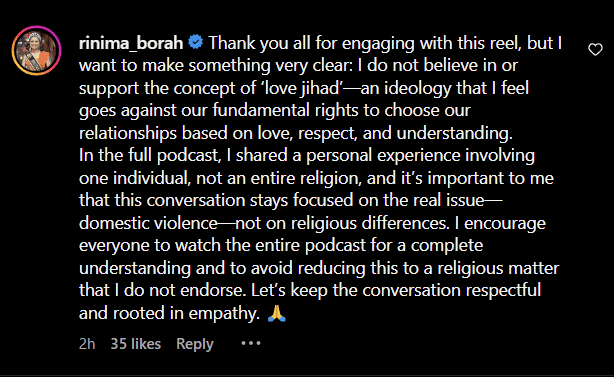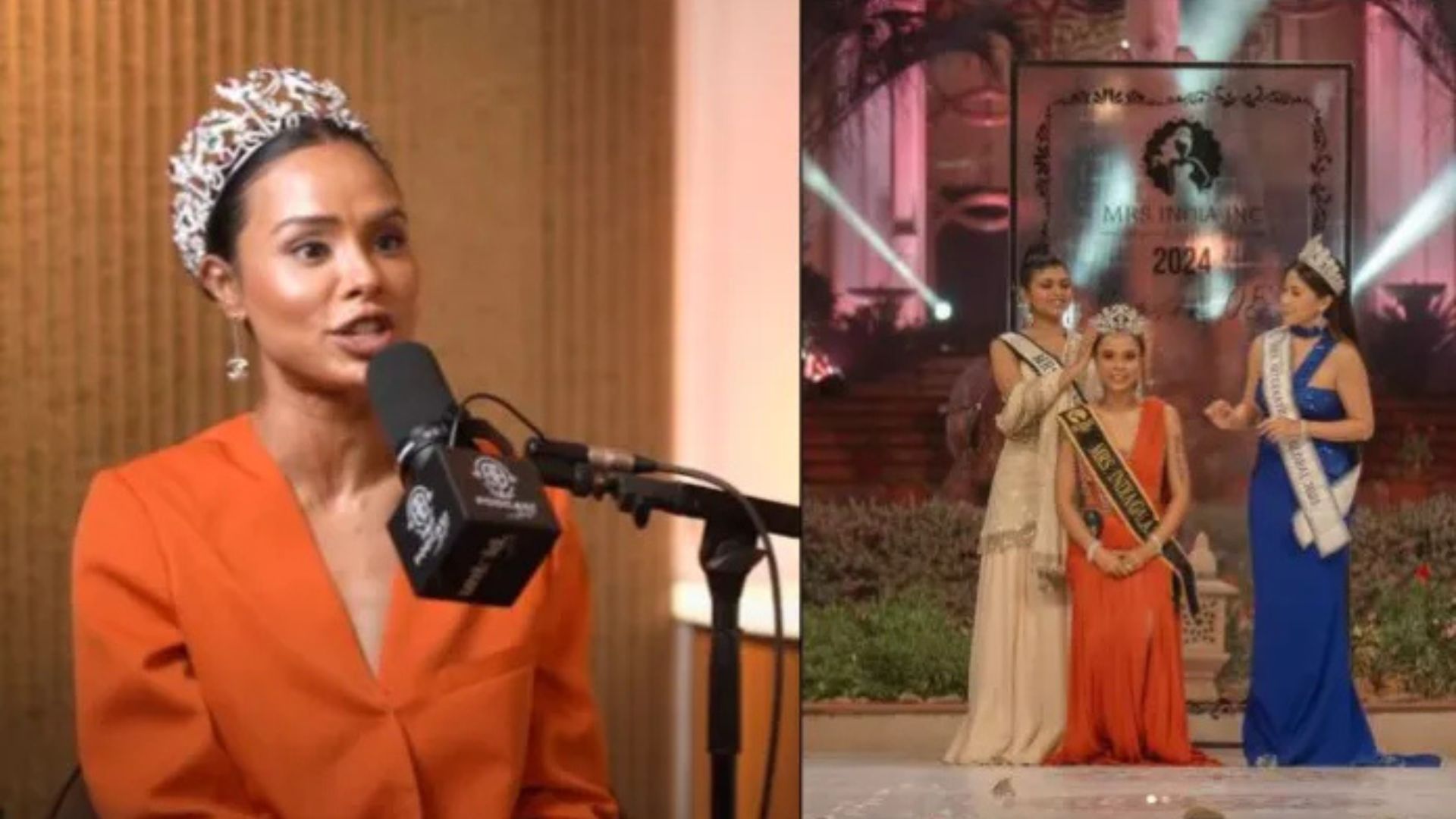Rinima Borah, recently crowned ‘Mrs. India Galaxy 2024,’ revealed troubling experiences with her former Muslim boyfriend, alleging she was forced to consume beef and pressured into performing Namaz.
In an interview with Assamese YouTuber Aboyob Bhuyan on November 8, Borah shared, “I have experienced trauma of abuse since last 16 years… It will take years for me to forget about it. Every day I console myself saying those days are over now… Till date some people tell that, it was all my fault and I still fight for that today.”
View this post on Instagram
Reflecting on her past, she added, “At the age of 16, I left for Bangalore from Assam to study. My first relationship was with a Muslim Boy there. I used to think, like my parents, he used to abuse me for my own good. At times, I used to call him TALIBAN for the way he treated me.”
Describing her distressing experience, she said, “He used to brutally beat me up. I was made to eat beef. I remember the day when they made me forcibly have beef…His parents forced me to consume beef. They changed my name to Ayesha Hussain from Rinima Borah…They made me do Naamaz too.”
Although she acknowledged the situation was “almost” a case of love jihad, Borah maintained it was a personal experience, not representative of an entire religion. “He (Muslim ex-boyfriend) must be watching this podcast. He had threatened to throw acid on me if I left him,” she recounted.
However, in response to the online reaction to her story, Borah later distanced herself from the concept of love jihad, emphasizing her belief in individual choice. “Thank you all for engaging with this reel, but I want to make something very clear: I do not believe in or support the concept of ‘love jihad’—an ideology that I feel goes against our fundamental rights to choose our relationships based on love, respect, and understanding,” she stated.

She emphasized that her story was meant to highlight domestic abuse rather than religious differences. “In the full podcast, I shared a personal experience involving one individual, not an entire religion, and it’s important to me that this conversation stays focused on the real issue—domestic violence—not on religious differences,” she clarified.







